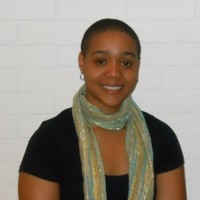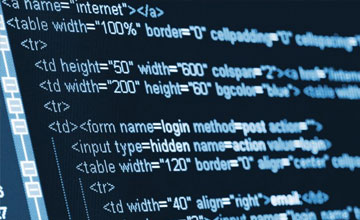
Emily J M Knox
- Courses3
- Reviews4
- School: University Of Illinois at Urbana-Champaign
- Campus: Champaign
- Department: Information Science
- Email address: Join to see
- Phone: Join to see
-
Location:
901 West Illinois Street,
Urbana, IL - 61801 - Dates at University Of Illinois at Urbana: June 2013 - October 2019
- Office Hours: Join to see
N/A
Would take again: Yes
For Credit: Yes
0
0
Not Mandatory
Good
An interesting and practical class. While the readings could be a bit more on the abstract side, she reviewed the class materials to better understanding.
Biography
University Of Illinois at Urbana-Champaign Champaign - Information Science
Resume
2018
University of Illinois at Urbana-Champaign
Urbana-Champaign
Illinois Area
Courses Taught:\nIntellectual Freedom and Censorship (Fall 2012
Spring 2014
Fall 2014
2019)\nLibraries
Information
and Society (Spring 2013
Summer 2018 )\nInformation Ethics (Spring 2015
Summer 2016
2017)\nInformation Policy (Spring 2016)\nInformation Organization & Access (Fall 2013
2019)\nReference and Information Services (Spring 2013
Fall 2013)\nSocial Aspects of Information Technology (Spring 2018
2019)
Associate Professor
* Provided office and computer support to 3 person staff of an international librarianship organization.\n * Created all display materials for 2003 ALA/CLA conference poster session on international librarianship.\n * Gave logistical aid for 15 participants in the program including help with presentations and assistance with librarianship education programs.
Mortenson Center for International Library Programs
Associate Director and Reference Librarian
* Managed day-to-day operation of the library including all public and technical services functions.\n * Supervised and evaluate full-time library staff.\n * Trained
supervised
and evaluated student workers and part-time library assistants.\n * Assisted in the planning and implementation of library polices and procedures.\n * Assisted library director in preparation of library budget.\n * Performed all reference librarian duties.
General Theological Seminary
Project Assistant
* Provided office and logistical support to attorneys and legal assistants for one of the largest law firms in the country.\n * Organized court documents for a major insurance litigation with approximately 20
000 claims and a Chapter 11 bankruptcy case with approximately 340
000 claims.\n * Prepared monthly fee petition document for major bankruptcy case.\n * Aided attorneys and legal assistants in preparation and execution of bench trial including preparation of court documents and exhibits.
Kirkland & Ellis LLP
2008
PhD
Communication
Information
and Library Studies
Treasurer SC&I Doctoral Students Association\nTreasurer Rutgers Graduate Students Association
Rutgers
The State University of New Jersey-New Brunswick
2002
MS
Library and Information Science
1998
MA
Religion
1994
BA
Religion
1969
Please join us as we kick-off the year-long celebration of the Freedom to Read Foundation's 45th anniversary! On November 20
the Freedom to Read Foundation filed its Articles of Incorporation with the State of Illinois
marking the official start of a journey that has helped ensure the protection of some of our most basic rights.
FTRF 45th Anniversary Celebration Kick-Off
Emily Knox discusses the West Bend Book Challenge
Emily Knox West Bend Book Challenge
Emily Knox discusses the West Bend Book Challenge
ALA Midwinter 2018 - Should Libraries Be Neutral?
Catch all the excitement of ALA Midwinter Meeting & Exhibits in Denver! American Libraries Coverage: http://americanlibrariesmagazine.org/tag/alamw18/ Twitte...
ALA Midwinter 2018 - Should Libraries Be Neutral?
Perspectives on Intellectual Freedom and Censorship
Part III
Associate Professor Christine Jenkins and Assistant Professor Emily Knox share their perspectives on intellectual freedom and censorship in the context of the library. In this video they discuss
\"How can libraries balance serving their communities with protecting intellectual freedom?\" Jenkins and Knox teach at the Graduate School of Library and Information Science at the University of Illinois.
Perspectives on Intellectual Freedom and Censorship
Part III
Perspectives on Intellectual Freedom and Censorship
Part II
Associate Professor Christine Jenkins and Assistant Professor Emily Knox share their perspectives on intellectual freedom and censorship in the context of the library. In this video they discuss
\"What are the consequences when books are successfully banned?\" Jenkins and Knox teach at the Graduate School of Library and Information Science at the University of Illinois.
Perspectives on Intellectual Freedom and Censorship
Part II
2013 GSLIS Research Showcase: Emily Knox
GSLIS Assistant Professor Emily Knox presents \"Reading Practices and Intellectual Freedom Research.\" In March 2013
GSLIS faculty and doctoral students shared the breadth of their research in a series of short presentations as part of the annual GSLIS Research Showcase. Visit the GSLIS website for more information: http://www.lis.illinois.edu/
2013 GSLIS Research Showcase: Emily Knox
Perspectives on Intellectual Freedom and Censorship
Part 1
Associate Professor Christine Jenkins and Assistant Professor Emily Knox share their perspectives on intellectual freedom and censorship in the context of the library. They first discuss
\"What motivates people to ban books?\" Jenkins and Knox teach at the Graduate School of Library and Information Science at the University of Illinois.
Emily Knox by Catskill Review of Books
A conversation with Emily Knox about Book Banning
who wants it and why? And how!
Teaching
University Teaching
Higher Education
Virtual Reference
Access
Academic Writing
Research
E-Learning
Library Instruction
Library Research
Distance Learning
Library Management
Books
Library Reference
Qualitative Research
Interlibrary Loan
Online Research
Library Science
Academic Libraries
Curriculum Design
Intellectual Freedom and the Agnostic–Postmodernist View of Reading Effects
One of the more confusing aspects of contemporary librarianship is its support for collecting “all sides” in its institutions while
at the same time
arguing for the positive nature of reading for all. This article focuses two positions toward knowledge effects. One
the postmodernist view
is agnostic toward the effects of gaining new knowledge while the other
the traditional–modernist view
holds that the effects of new knowledge can be known and are inevitable. It is the postmodernist position that undergirds contemporary librarianship’s support for intellectual freedom.\n
Intellectual Freedom and the Agnostic–Postmodernist View of Reading Effects
Understanding why people attempt to remove
relocate
or restrict books in an age of ubiquitous access is one of the more puzzling aspects of contemporary challenge cases. In order to better comprehend this largely symbolic phenomenon
this study focused on the arguments that book challengers employed to justify the removal
relocation
or restriction of books in 13 challenge cases in public libraries and schools across the United States between 2007 and 2011.
Society
institutions
and common sense: Themes in the discourse of challengers in 21st century United States.
Written specifically for libraries facing budgetary constraints
limited resources and inadequate training
this invaluable guide outlines the time-management skills and technical ingenuity that will help transform Interlibrary Loan (ILL) and document delivery service into an efficient and organized operation.
Document Delivery and Interlibrary Loan on a Shoestring
Book Banning argues that understanding contemporary reading practices is vital to understanding why people attempt to censor books.
Book Banning in 21st Century America
With “triggered” as Google’s most searched word of 2016
trigger warnings have become a prevalent yet controversial concept in American higher education and society. As the debate over the value and place of triggering material continues
Trigger Warnings: History
Theory
Context provides the historical context and theoretical analysis of the use of trigger and content warnings in academia. This important edited collection examines the history
theories
and ethics of trigger warnings and presents case studies from instructors and students describing instances when trigger warnings were and were not used. By exploring the issue through several scholarly lenses and providing examples of when trigger warnings may or may not be used effectively
Trigger Warnings provides rigorous analysis of the controversy.
Trigger Warnings: History
Theory
Context
John Burgess
s discussions about the roles played by information in economic
political
and social arenas continue to evolve
the need for an intellectual primer on information ethics that also functions as a solid working casebook for LIS students and professionals has never been more urgent. This text
written by a stellar group of ethics scholars and contributors from around the globe
expertly fills that need. Organized into twelve chapters
making it ideal for use by instructors
this volume from editors Burgess and Knox\n\nthoroughly covers principles and concepts in information ethics
as well as the history of ethics in the information professions;\nexamines human rights
information access
privacy
discourse
intellectual property
censorship
data and cybersecurity ethics
intercultural information ethics
and global digital citizenship and responsibility;\nsynthesizes the philosophical underpinnings of these key subjects with abundant primary source material to provide historical context along with timely and relevant case studies;\nfeatures contributions from John M. Budd
Paul T. Jaeger
Rachel Fischer
Margaret Zimmerman
Kathrine A. Henderson
Peter Darch
Michael Zimmer
and Masooda Bashir
among others; and\noffers a special concluding chapter by Amelia Gibson that explores emerging issues in information ethics
including discussions ranging from the ethics of social media and social movements to AI decision making.\nThis important survey will be a key text for LIS students and an essential reference work for practitioners.
Foundations of Information Ethics
Support for intellectual freedom has been a part of librarianship since the 1930s. There are three primary phenomena that form the foundation of this support: codification
institutionalization
and investigation. Codification occurred primarily through the ratification of the Codes of Ethics and the Library Bill of Rights by the American Library Association (ALA). Institutionalization refers to the establishment of committees dedicated to upholding intellectual freedom by the ALA. Finally
investigation includes both scholarly and nonscholarly research into intellectual freedom and censorship within library and information science. Using Pierre Bourdieu’s concept of symbolic capital
this article argues that these three areas are the foundation of a practical philosophy for librarianship that encourages librarians to eschew censorship in their institutions.
Supporting Intellectual Freedom: Symbolic Capital and Practical Philosophy in Librarianship
One of the many areas of conflict between challengers and professional librarians centers on the definition of censorship. Challengers often employ a definition that maintains that banning materials is the only true form of censorship
while the codified definition of censorship within librarianship is concerned with impediments to access. Through analysis of arguments in the West Bend (WI) challenge case
this article explores three themes in challengers’ narrow definitions of censorship found in their discourse. First
challengers argue that moving books within the library is not considered to be censorship. Second
they maintain that labeling books for content is also not a form of censorship. Finally
challengers focus on “common sense” actions and the power of the majority in their arguments to impede access to controversial materials.
The books will still be in the library: Narrow definitions of censorship in the discourse of challengers.
Knox
Emily J. M.
Knox
Mortenson Center for International Library Programs
General Theological Seminary
University of Illinois at Urbana-Champaign
Kirkland & Ellis LLP
Rutgers University School of Communication and Information
Champaign
IL
Assistant Professor
University of Illinois at Urbana-Champaign
* Provided in-person and virtual reference services to students
faculty
staff
and outside researchers at 240
000-volume academic library.\n * Taught research and preservation skills to students including FirstSearch
Voyager
and Internet searching.\n * Maintained all aspects of electronic research including electronic journals control.\n * Handled all aspects of interlibrary loan lending approximately 250 items per year.\n * Provided access to 30
000 volume special collection of rare books and manuscripts.\n * Supervise two interns in various special projects.\n * Managed implementation of Endeavor Voyager integrated library system including uploading and maintenance of clients and installation of proxy server.\n * Designed
developed
and maintain library website.
The General Theological Seminary
Teaching Assistant
Teaching Assistant for ITI 101
Rutgers University School of Communication and Information
A Few Moments with Emily Knox
GSLIS Assistant Professor Emily Knox shares how her interest in banned books started and gives insight into her research
in which she studies how people try to deal with changing norms in society by challenging books.
A Few Moments with Emily Knox
FTRF 45th Anniversary Celebration Kick-Off


